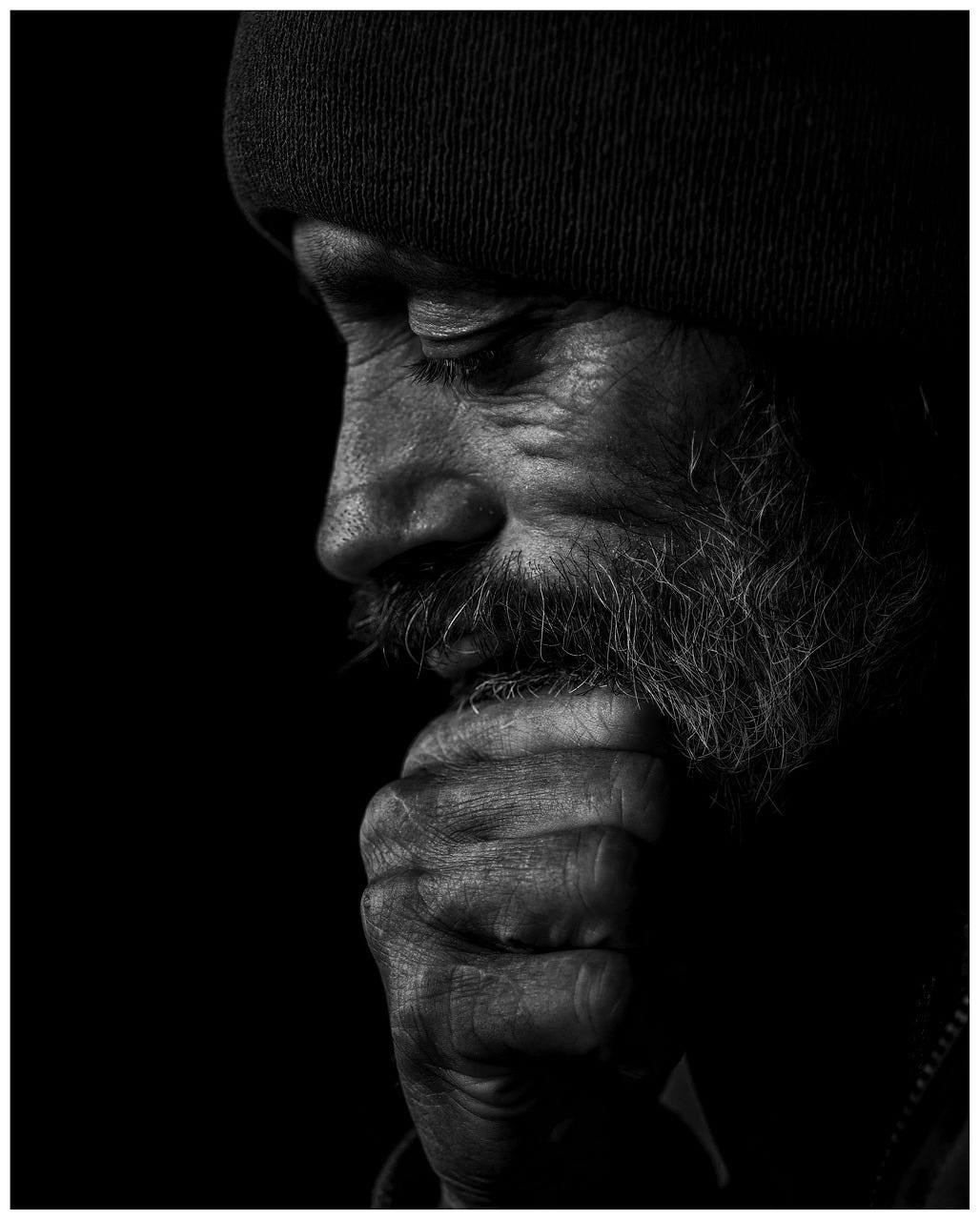I was seven or eight years old, sitting in the living room with my mother, and something was bothering me.
“Mommy?”
“Yes?”
“How come there are homeless people when there are trees all around that someone could build homes from?”

I was genuinely confused.
She did her best to explain property ownership and economics to a child.
After she finished, I shook my head. “I don’t understand.”
She tried again, with more detail.
“No,” I whispered. “I get it. I just don’t understand. It makes no sense.”
I don’t remember what she said after that. I just remember the heat of confusion and anger, like I’d glimpsed something deeply broken in the machinery of the world for the first time.
I’d seen the Sarah McLachlan commercials, the ones featuring starving children. I’d learned about homelessness. I looked around at a world overflowing with resources, more than enough to care for everyone’s basic needs. But because of some invisible, imaginary rules about ownership, about greed, people were going without.
I couldn’t reconcile it.
Being raised as a literal autistic child in a Roman Catholic home, in a so-called “Christian nation,” was baffling and infuriating.
As I got older, the gap between what I was taught and what I witnessed only widened.
I was told that greed was sinful, that Christ loved the poor, that generosity was a virtue. But outside the church walls, I saw people hoard wealth, mock the homeless, and blame the hungry for their hunger. I saw cruelty rewarded and compassion dismissed. I saw laws passed that entrenched inequality. I saw people claim to follow Jesus while scoffing at the very people he told them to serve.
And no one seemed disturbed by this contradiction. No one seemed as horrified as I was. And that only deepened the horror.
It wasn’t that I didn’t understand these systems. I understood them better with every passing year. I just found them morally incomprehensible. And later, once I realized these systems weren’t broken but working exactly as intended, I found them reprehensible.
Decades later, my own eight-year-old autistic son walked up to me while I was applying for Medicaid.
“What are you doing?” he asked.
“Applying for health insurance,” I said.
“What’s that?”
When I explained that in our country, doctors often won’t treat sick or injured people unless they’re paid, and how medical insurance had come about, he exploded with rage. His face flushed, his fists clenched. He went on a tirade several minutes long. I had to help him take deep breaths before that righteous fury tipped into meltdown.
I was heartbroken for him, but also proud.
Because his was the only rational response.
Most people just shrug and say, “Yeah, well… that’s just the way it is. That’s the way it has to be.”
Is it? Is that the way it has to be?
As autistic people, we tend to think from the bottom up, not the top down. We don’t start with, “That’s just how it is.” Instead, we ask, “Why is it like this? Does this make sense? Is this fair? Who benefits from it staying this way?”
And those are dangerous questions in a system built on unspoken rules and inherited injustice.
I’m not saying autistic people are superior or more moral than neurotypical people. I know plenty of non-autistic people who care deeply and ask hard questions. But I am saying that our different neurological wiring makes us less inclined to swallow hypocrisy just because it’s tradition.
That’s a gift. And one that society needs.
For most of my life, I saw my inability to fit into “normal” systems as a personal failing. But I’m starting to feel thankful for being a square peg that couldn’t slot into a round hole. If these systems hadn’t resisted me so hard, maybe I wouldn’t have inspected them so closely.
There’s something about being a disenfranchised minority that gives you a clearer view of the lie, and not just because your back is the one being used as a stepping stone, but because from that hunched-over position, you can see the whole structure from an angle others can’t.
You can’t build a better world if you believe this is the only one possible.

You build a better world by asking why things are the way they are, and whether they could be otherwise.
I’m still that little girl who looked at the world and saw abundance. I’m still that girl, furious about manufactured lack. I’m still that girl whose blood boils when she hears, “That’s just the way things are.”
No.
I refuse to accept that.
How things are is just one way things could be.
And it’s one of the worst possible ways.
People like RFK Jr. aren’t just campaigning for the “eradication of autism” (which, let’s be clear, is not a disease, it’s a form of biological diversity). To eradicate autism would mean eradicating autistic people, which is something a particularly heinous regime in 1940s Europe already tried.
They’re not afraid there won’t be enough taxpayers or baseball players.
They’re afraid of us because we question the very foundations they stand on. They benefit from systems of inequality, systems that we threaten by refusing to pretend they’re just.
Our inability to “function” in this world isn’t a personal defect. It’s a signal that the world itself is built wrong.
I’ve said it before and I’ll say it again: autistic people are the canaries in the coal mine. In my opinion, the only thing that truly separates us from our neurotypical peers is that we have a lower threshold for things like stress and injustice. But we’re all equally human, autistic or neurotypical, and what harms some of us will, eventually, harm all of us.
Systems of inequality require an oppressed class. They thrive on imbalance.
Our so-called dysfunction is a rejection of that imbalance. We weren’t built to thrive under exploitation, and that’s the point.
The kinds of systems where autistic people do thrive are radically different: egalitarian, mutualistic, rooted in support instead of extraction. Systems where greed has no place (so, of course, the greedy must discredit them to protect their ill-gotten gains.)
Autistic people are a compass pointing to the way things could be. And that makes us a threat.
But like I said, it’s not that I don’t understand the world as it is.
I do. I understand that as long as greed is the engine driving humanity towards a cliff, egalitarian systems will remain out of reach. I understand that mutual aid and collective care will sound like fantasy to those still trapped in the zero-sum thinking of domination and scarcity.
But just because we’re not there yet doesn’t mean we stop trying to get there.
Just because the world isn’t ready doesn’t mean we stop imagining what it could be.
Another world is possible.
I refuse to believe it isn’t.




I never understood till reading your article that why I rage at the injustice I see before would be my wiring. Still learning what it means to be neurodivergent and it’s interesting to see it from other. So thank you
This is beautiful and so important. This is a piece for Right Here and Now (and all the time after that)
Thank you.